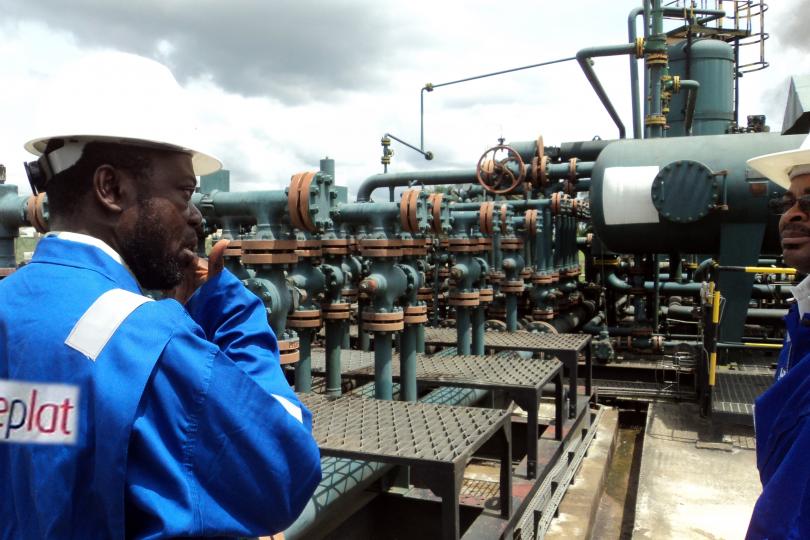- Shell Gets 12-year $40-100/bbl Operational Benchmark
Royal Dutch Shell has pegged its operational outlook at between $40 and $100 per barrel of oil from this year to 2030. It, however, noted that prices could move above or below this range.
In its 2017 Energy Transition Report, the oil giant said: “Given this range of outlook, we consider a range of between $40 and $100 per barrel of oil till 2030 to be likely. We have used our assumptions about the future cost of supply (the price at which it makes economic sense to produce resources) as the floor for our range.
“Prices could move above or below this range. However, when oil prices fall, levels of industry investment tend to decline, which could lead to reduced production. Eventually, higher prices could be needed to support new investment in production to meet demand.
“We, therefore, think it is unlikely that oil prices would remain at the lower end of our price range for several years. For comparison, the average Brent price for the last five years has been around $70 per barrel. The International Energy Agency (IEA’s) most rapid transition scenario – the Sustainable Development Scenario – indicates an average oil price of $68 per barrel in the period to 2030. The IEA’s Current Policies Scenario, that models current and announced energy policies, indicates an average price of $90 per barrel for the same period.”
He continued:“Today, around 60 per cent of our Integrated Gas portfolio is linked to oil prices. Based on our view of possible future oil prices, we consider a range of between $6 and $12 per million British thermal units (MMBtu) to 2030 for liquefied natural gas (LNG) to be a plausible price for Asian markets, where we sell around 60 per cent of our LNG.”
Considering sensitivity to oil prices, Shell said: “Assuming we meet the conditions in our operational plans, especially with regards to production and costs, we estimate that to 2027, a $10 per barrel change in oil prices would be expected to have a roughly $6 billion impact per year on our cash flow from operations. This is an indicative estimate and not a prediction.
“Based on this assumption, if the oil price fell from around $65 per barrel today to $40 per barrel moneyof-the-day, our cash flow from operations would be expected to decrease by $15 billion per year.
“Similarly, if the oil price rose to $100 per barrel money-of-the-day, our cash flow from operations would be expected to rise by $21 billion per year.
“In addition to the resilience of our cash flow from operations, we are also managing the resilience of our organic free cash flow by actively managing the upper levels of our expected capital investment.
“The capital investment levels included in our business plan offer sufficient flexibility to be reduced by $5 billion to 10 billion per year without materially impacting the long term sustainability of our business.
“Our financial framework could sustain a potential reduction of up to $15 billion per year in organic free cash flow, according to our estimates. Some of the ways we could respond to this shortfall include reducing capital investment to below $25 billion, further reducing operational expenditure, increasing our levels of debt and accelerating divestments.
“If prices were to remain below the bottom of our range for more than three to five years, an outcome we think unlikely, we would consider making further strategic, portfolio and financial framework choices to remain financially resilient.
“Conversely, in periods of high oil and gas prices we would use the excess organic free cash flow to strengthen our balance sheet and consider share buybacks.”
According to the Report, Shell is stress testing its portfolio to assess its financial resilience in the short and medium term to 2030, adding that it looks the sensitivity of its cash flow to changes in oil prices, and to changes in the cost of carbon dioxide (CO2) emissions. “We expect that the risks associated with the energy transition will ultimately be reflected in the price of oil and gas, and therefore this is the basis for stress testing our portfolio.
“Our scenarios show a range of possible outcomes for the energy system based on factors including growth in demand, the development of new technologies, world politics and government policy,” it added.


 Naira4 weeks ago
Naira4 weeks ago
 Billionaire Watch4 weeks ago
Billionaire Watch4 weeks ago



 Naira4 weeks ago
Naira4 weeks ago






 Naira4 weeks ago
Naira4 weeks ago


 Naira3 weeks ago
Naira3 weeks ago






 Naira3 weeks ago
Naira3 weeks ago
 Economy4 weeks ago
Economy4 weeks ago


 Naira3 weeks ago
Naira3 weeks ago





















